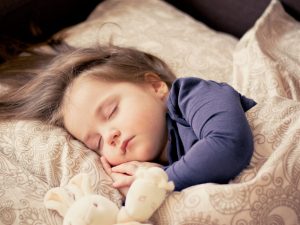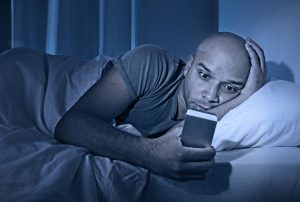
Functioning on less sleep, seems to have become a badge of honor in our society. Many highly successful people including U.S. Presidents and other world leaders are often lauded for getting only five hours or less of sleep a night, leaving more time to work and get things done. There is incredible pressure to work more and sleep less. Often, this pressure leads to harmful habits such as working through lunch, sedentary lifestyles, not taking vacations, over-caffeinating ourselves, or drinking alcohol to unwind. These habits can add stress to our bodies resulting in fragmented sleep and suppression of dreams.
Sleep on this: the average number of hours Americans sleep at night has dropped from 8.1 in the 1940s to 6.75 hours a night, according to Matt Walker, professor of neuro-science and psychology at the University of California, Berkeley.
“The number of people who can survive on six hours of sleep or less and show no impairment is zero,” says Walker. We need at least seven hours of sleep a night or we are setting ourselves up for major health consequences. Walker adds, “Every major disease that is killing us in the developed world: Alzheimer’s, cancer, obesity, diabetes, anxiety, depression, suicidality, all of them have direct and very strong causal links to deficient sleep.”
What most people don’t realize is that we are sabotaging our own sleep. One of the most common sleep reducers is central heating and air conditioning. At night temperatures drop signaling our bodies that it is time to rest. When the sun comes up and the thermostat rises, so do we. However, by controlling the climate in our homes to a steady temperature, we inadvertently dislocate ourselves from the natural thermal cycle of the day that tells un when it is time to sleep and wake.

Technology is another factor interfering with our normal sleeping pattern. Melatonin is a hormone that signals our bodies that it is time to sleep. Blue light emitted from computer screens, tablets, smart
phones, and several devices with LED screens halts the body’s release of melatonin and hinders our REM process. Technology also causes sleep procrastination. Midnight is a common time when people hop on the computer once more before bed to check Facebook or send that last email of the night. For someone who must get up early for a full workday, midnight is too late a time for the body to get enough REM sleep.
Advancements in mattresses have improved sleep conditions. With some simple lifestyle changes, we can make sure our bodies get the rest we need to live more healthful lives.
If you would need to get a new mattress then visit one of our Best Mattress stores where our sleep experts can help you get more restful sleep each night
